You’ve packed your moto camping kit. You’ve loaded up your luggage. You zip up your moto jacket and step out into…your backyard? When it comes to motorcycle camping tips, this is perhaps the best place to start.
Regardless of whether you’re an experienced motorcyclist or a skillful camper, there’s something about combining the two that enhances the adventure – and the challenges. Your backyard might seem like an odd place to camp, but if you’re new to motorcycle camping or trying out equipment for the first time, there’s no better place to practice than at home.
Motorcycle Camping Tips 101: Checking Your Kit
Unlike car camping, tossing everything in the back of your vehicle is not an option when traveling on a bike. Motorcycle camping requires more attention to organization and efficient packing. You not only have limited space, but often you need to unpack and set up camp when you’re worn out from a long day of riding. You then must pack everything back up again the next morning – and that tent never wants to go back in its stuff sack just right, does it?
It can take time to figure out how new equipment works. After upgrading to a larger tent, I embarked on a moto camping trip before trying it out first. When I arrived at my campsite in West Virginia, exhausted from riding since dawn, I realized the new tent’s guy lines were different than my usual setup. Without internet access, I had to guess how to tie them. I made it through the night, but the clear light of morning revealed I had tied them incorrectly. Had I tried to stake down those lines at home, I could have quickly determined the correct method by pulling up a video on my phone.
Related: Camping Challenge: Roughing It ‘Rider’ Style
The Benefits of the Backyard
Testing your camping gear and learning the proper approach for set up and break down in your backyard saves headaches in the backcountry. Practice makes perfect. Can’t figure out a piece of gear? Read the instruction manual or find a tutorial on YouTube. Is something broken or missing? Find a replacement before you need it most, and get your packing list dialed in from the comfort of home.
Lucky are those who can sleep through anything. For the rest of us, a sagging sleeping pad or too-puffy pillow can make for a miserable, sleepless night – and fatigue and soreness the next day, which affects your riding.
One night while camping in the early spring, I discovered that my idea of a comfortable sleeping temperature differed significantly from my sleeping bag manufacturer’s rating. After shivering for an hour in 35-degree temperatures inside my 30-degree bag, I donned every piece of clothing I had, including three pairs of socks and my motorcycle gloves, before I finally fell asleep. Had I tested the sleeping bag at home at that temperature, I could have simply gone inside – and opened a browser tab to order a thermal sleeping bag liner.
Waiting to Wander
After testing out your gear, packing methods, and camping setup, you might be ready to head out on that long-distance motorcycle trip. While you would be better equipped than you were before the backyard practice, another of my motorcycle camping tips I might offer is that it’s still a good idea to do a shakedown run with your loaded motorcycle and perhaps spend a night at a campsite close to home, especially when trying out new gear or luggage.
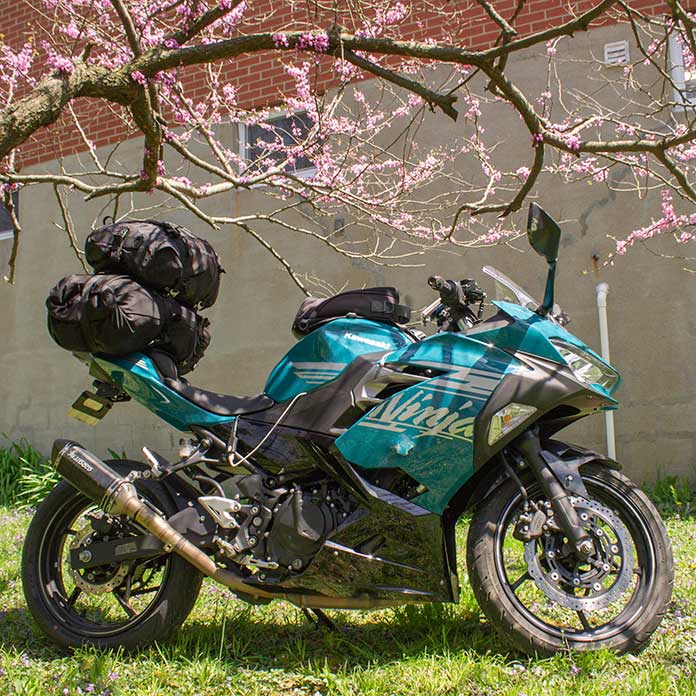
I purchased a set of universal-fit Sedici saddlebags for my Kawasaki Ninja 400, and after loading them up, I hit the road. When I arrived at a campground a couple of hours later, I smelled something odd. After examining my bike, I discovered that hot exhaust gas from the muffler had burned a gaping hole in the corner of the saddlebag.
Related: Take It With You: Motorcycle Luggage Buyers Guide
Molten sunscreen and soap were dripping out of the singed tarpaulin, and I knew I wasn’t going to be able to ride home like that – not without my stuff falling out of the hole or being melted or burned on the way. I called my husband and asked him to drive to the campsite so we could load my gear into our truck. Had I tried those saddlebags around town before heading out, I could have saved us both time and hassle.
Don’t think of setting up camp in your backyard as a chore or a waste of time. Have fun and use it as an opportunity to get excited about the adventures to come. Play with your gear, enjoy the outdoors, and if something goes wrong, you can always sleep in your own bed.

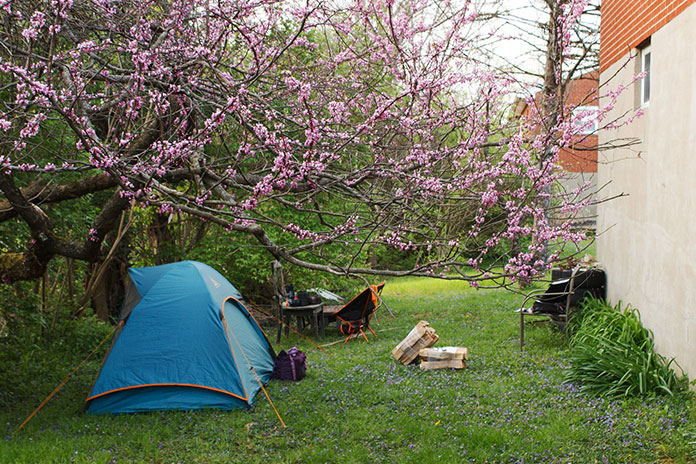
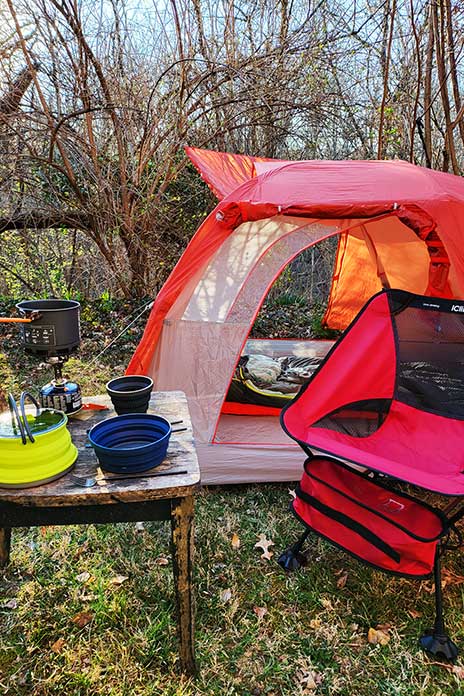
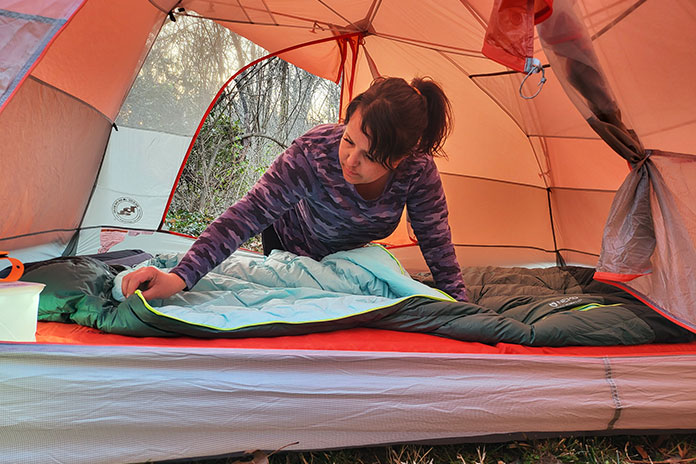



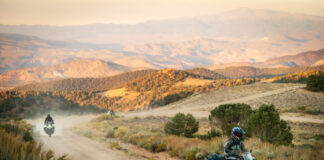

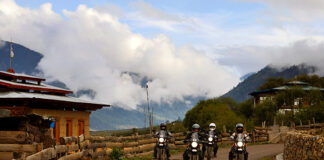

Sleeping bag manufacturers have a note that typically says that the temp rating will allow you to survive, not sleep in comfort. I guess that’s generally true…
A handy tip is to have one or two self heating ready meal tins in your kit.
It’s a great standby for those occasions when your dog tired and just having something hot to eat when you’re cold and wet, helps sort body and soul
I have packing list (I use excel spreadsheet) that I use for my different bikes and different types of trips I take and I always update them after each trip. I also keep track and make notes on how I pack each time. What I use/take adventure riding is different from what I take and use on my Goldwing. I’ve done this since my backpacking days as a teenager (1970s).
Another advantage of “test camping” is that you’ll learn the best way to pack your gear. For example, you wouldn’t want to pack stuff you use a lot or will need during the day in the bottom of a bag. You’ll want those things accessible. Similarly, your tent is probably one of the first items you’ll need when you come to a campsite, so that will go on top. Pack your cooking gear with your food. Etc. You’ll figure out what works best for you!